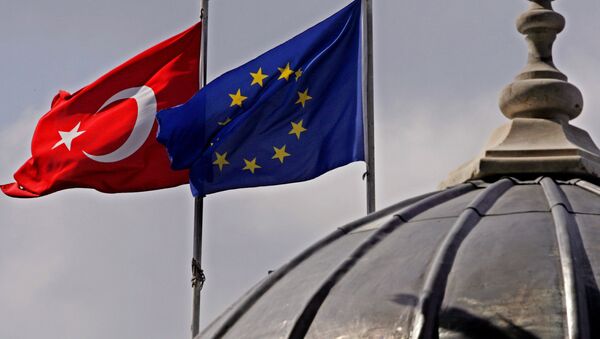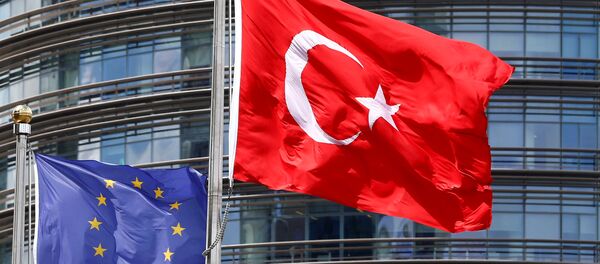The EU-Turkey migration deal has alienated Ankara and Brussels and provoked the growth of anti-Turkish sentiments in Europe, Doster argued.
"Discussions around this [migration] deal gradually became of unacceptable nature and turned, roughly speaking, into a farce. Both sides have accused each other of non-compliance with the provisions of the agreement. Turkey slammed the EU for having provided it with only 600 million euros from the promised 3 billion euros. In turn, the EU accused Turkey of trying to blackmail the bloc. The situation with the agreement on refugees completely alienated Turkey and the EU from each other," the expert said.
The agreement was supposed to address the overwhelming influx of migrants and refugees to Europe. However, the deal came under increasing threat due to the souring of relations between Brussels and Ankara.
According to Doster, Turkey has not received any benefits from the migration agreement.
"Turkey has not benefited from this deal. Moreover, it has become a political tool for election campaigns not only in Germany, but also in the Netherlands, Belgium and Austria. Just as Turkey has a negative attitude towards the EU and spreads anti-European propaganda, Turkey's policy towards refugees, its foreign policy in general, its attitude toward Syria and the situation surrounding the referendum on constitutional amendments have become a part of internal politics in the European countries. Turkey did not receive any dividends, while Europe started facing an unprecedented growth of anti-Turkish sentiments," Doster concluded.





